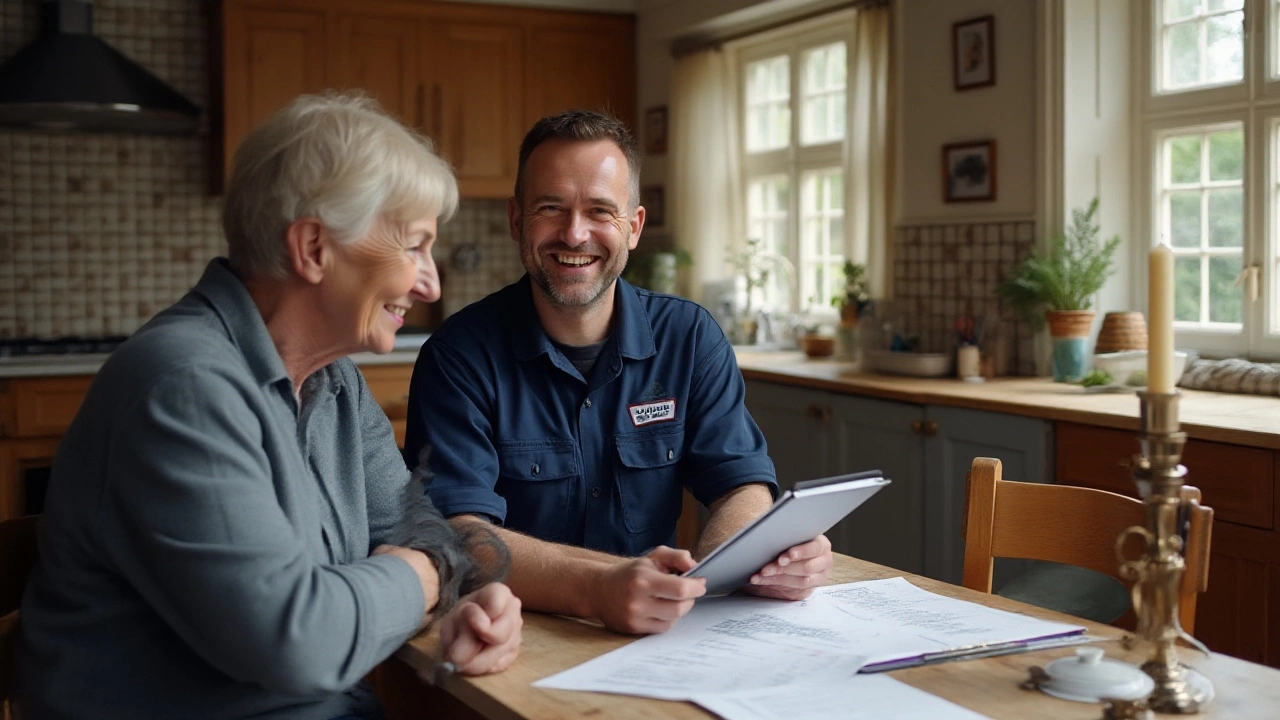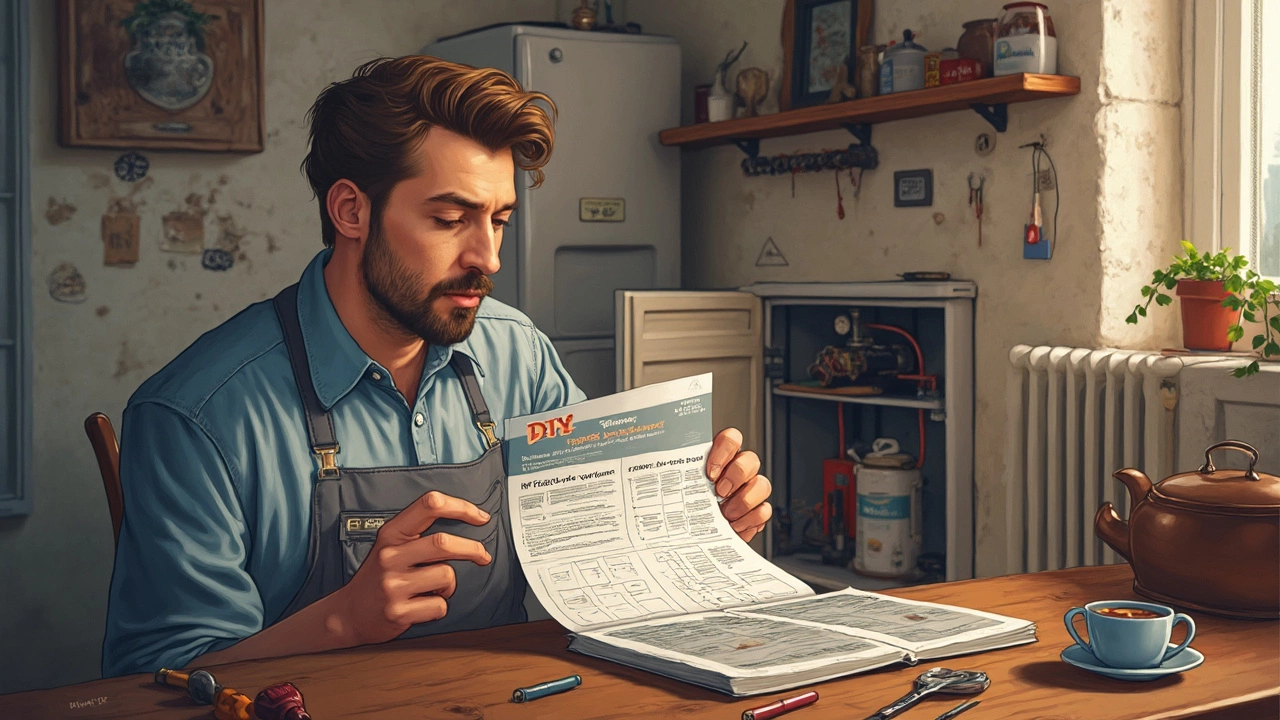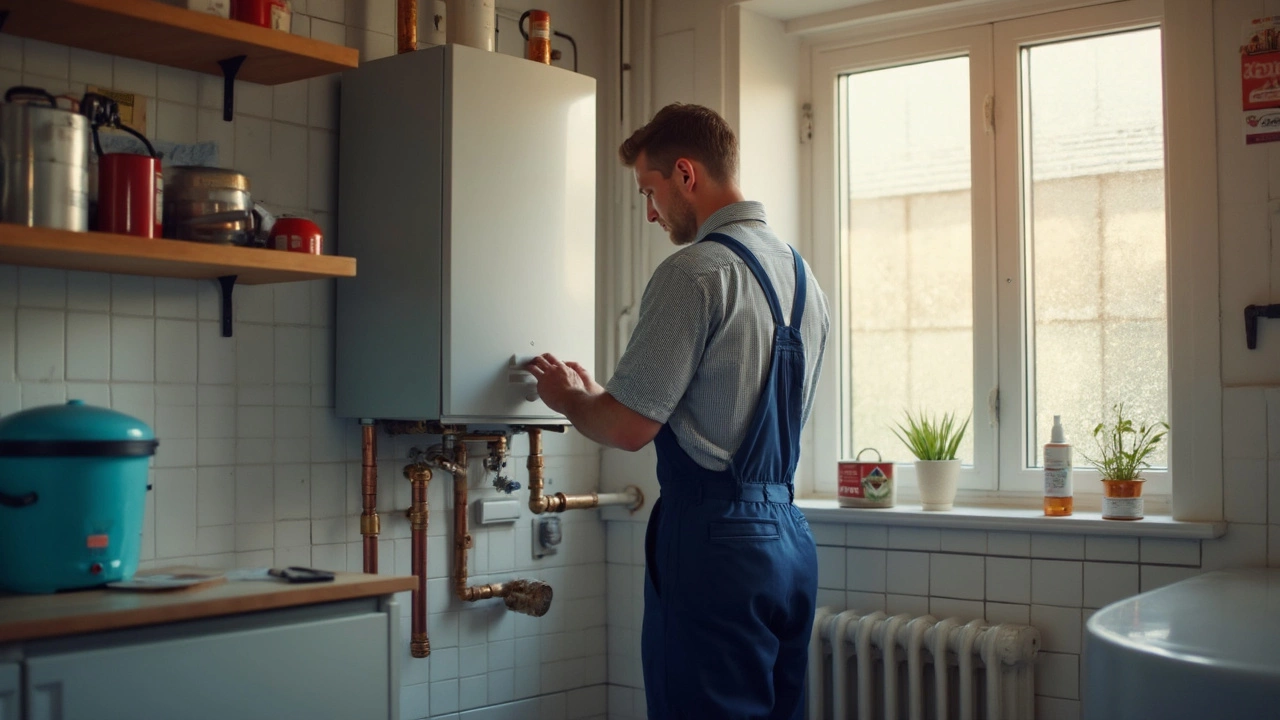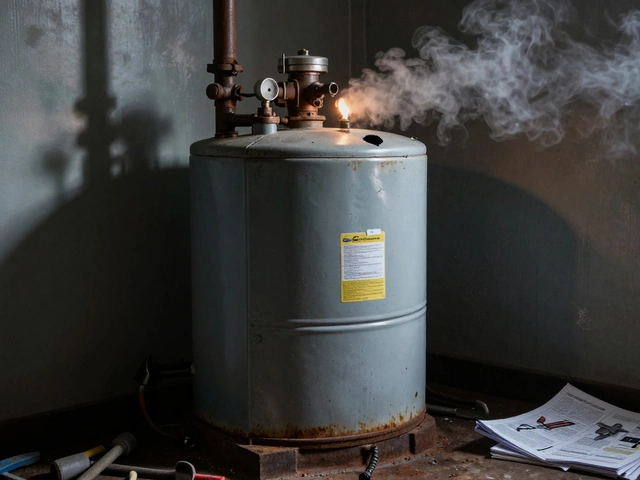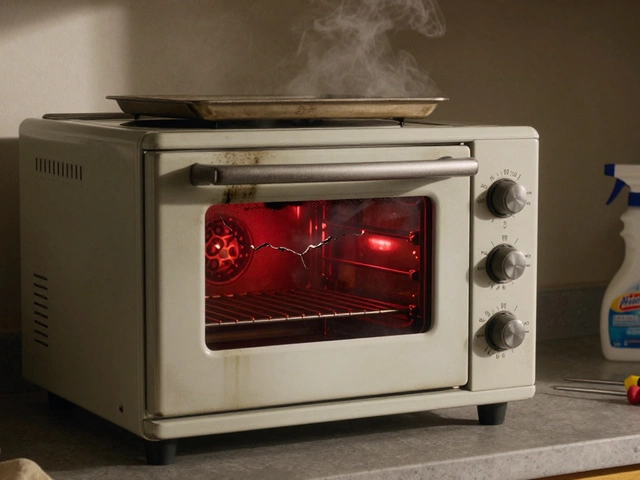Thinking about how much you're going to spend on a boiler repair can be a headache, right? It's not always straightforward, but getting a handle on the typical costs can give you some peace of mind. Let's face it, nobody wants to be caught off guard when the bill arrives.
The cost can range from a simple fix like replacing a valve all the way up to more complex issues that might mean shelling out quite a bit. What's the deal with the difference? It usually comes down to a few key factors, like the type and age of your boiler, the severity of the issue, and even your location.
- Factors Affecting Repair Costs
- Common Boiler Problems
- Signs You Need a Repair
- Tips to Save on Repairs
Factors Affecting Repair Costs
Several elements can impact how much you end up paying for a boiler repair. Understanding these can help you get a heads up on what to expect. Let's break it down a bit.
Type and Age of Boiler: The kind of boiler you have plays a big role. A traditional boiler might be cheaper to repair, but if you're rocking a high-efficiency model, prepare for potentially higher costs. Older models might be trickier too, as parts can be rare or pricier to find.
Nature of the Issue: Not all problems are created equal. A small leak won't hit your wallet as hard as fixing a busted heat exchanger, for example. Keep an eye on symptoms and catch issues early to avoid dealing with bigger problems later.
- Simple Repairs: Thermostat issues or pressure adjustments are generally easier on the budget.
- Complex Fixes: Problems with the burner or pipes might demand more time and money.
Location: Where you live can also tweak the cost. In urban areas, expect to pay more due to higher labor fees. It’s just the way the cookie crumbles.
Technician Expertise: Hiring an experienced technician can mean a better quality service, but often at a higher rate. A detailed diagnosis from a skilled technician, though, can save you money in the long run.
Urgency: If your boiler decides to quit during a winter cold snap and you’re in a hurry for repairs, you might face extra charges for an emergency call-out.
Keeping these factors in mind might help you prepare for those inevitable boiler repair costs and prevent sticker shock down the road. Being informed is half the battle!
Common Boiler Problems
A bunch of stuff can go wrong with boilers, and knowing the common issues can save you time and money. One problem you might run into is low boiler pressure. This can make your heating system less efficient, and it's often due to a water leak or issues with the pressure valve. Checking and topping up the pressure might solve this, but if the problem keeps popping up, it’s best to call in a pro.
Another headache is the boiler not responding to the thermostat. This issue could be as simple as a thermostat setting or as complicated as a fault in the boiler's internal electronics. Before freaking out, double-check that your thermostat is working and set correctly.
You’ll also want to watch out for strange noises. Kettling, a word used when your boiler makes banging or whistling noises, typically means there's a build-up of sludge or limescale in the heat exchanger. This can cause serious damage if not handled soon. A system flush might do the trick, but if you've never done it before, professional help is advised.
Some folks face issues with pilot light going out, often due to a broken thermocouple or a draught blowing the light out. Even a deposit build-up can be the culprit. If your pilot light keeps extinguishing, it might need a replacement part.
- Frozen condensate pipe: In colder months, the pipe can freeze, causing a shutdown. Pouring warm water over the pipe could fix it.
- Radiators not heating up: Air in the system might be the problem, and bleeding the radiators usually helps.
Check out the table for a quick view of common problems versus potential fixes:
| Problem | Potential Fix |
|---|---|
| Low Boiler Pressure | Topping up the system, check for leaks |
| Non-responsive Thermostat | Check batteries, settings, or replace |
| Kettling | System flush, seek professional help |
| Pilot Light Issues | Inspect thermocouple, clear deposit build-up |
Recognizing these issues early can prevent minor problems from becoming major ones. Keeping an eye out and addressing issues promptly can also help you save on those pesky boiler repair costs.

Signs You Need a Repair
So, how do you know it's time to call in a pro for your boiler repair? Sometimes the signs are as clear as day, but other times they're a bit more sneaky. Here’s what you should keep an eye on to avoid bigger expenses down the line.
Firstly, if you notice a lack of heat or hot water, that's a red flag. Sure, it sounds obvious, but you'd be surprised how often this is overlooked until it's too late. Check the thermostat, and if all settings are correct, it might be your system crying out for help.
Another sign is strange noises coming from the boiler like banging, whistling, or gurgling. These are usually an indication that something's off, possibly air trapped in the system or low water pressure.
- Leaks or Drips: Any water around the unit is a cause of concern. It could hint at internal component failure, which requires immediate attention.
- Frequent Pilot Light Failures: If the pilot light keeps going out, it might be an issue with the thermocouple or a faulty gas valve.
- Radiators Not Heating: If some radiators aren't warming up as they should, it might be a sign of a sludge build-up or a circulation problem.
One useful tip: Keep tabs on your energy bills. Spikes in costs without increased usage often point to inefficiencies where parts might need repair or replacement. A properly maintained boiler should run smoothly without constant pocket-draining surprises.
Paying attention to these signs and getting routine checks can not only save you from unexpected costs but also add years to your boiler's lifespan. Don’t ignore these clues, and always think of preventive maintenance as an investment rather than an expense.
Tips to Save on Repairs
Let's face it, boiler repair costs can put a real dent in your wallet if you're not careful. But don't stress, there are ways to keep those expenses down. It's all about being proactive and savvy. Here's how you can do that:
- Regular Maintenance: This is your first line of defense. Regular check-ups can catch issues before they snowball into costly repairs. Consider booking a professional service at least once a year, ideally before the winter season hits. This simple step can extend your boiler’s lifespan.
- DIY Basics: Don’t underestimate what you can do yourself. Learn some basic maintenance tasks like bleeding the radiators or checking the pressure gauge. You can find tons of resources online to guide you.
- Compare Quotes: When you need a repair, don’t just go with the first quote you get. Shop around a bit. Sometimes prices vary significantly between service providers. Getting a few quotes can help you snag a competitive rate.
- Check Warranty: Before you pay out of pocket, see if your boiler is still under warranty. Many warranties cover parts and labor for several years. It could save you a big chunk of change!
In some cases, knowing when to replace rather than repair can also save you money. Constant breakdowns might signal it’s time for a new boiler. Sure, it’s an upfront cost, but in the long run, a more efficient system reduces your energy bills and repair costs.

